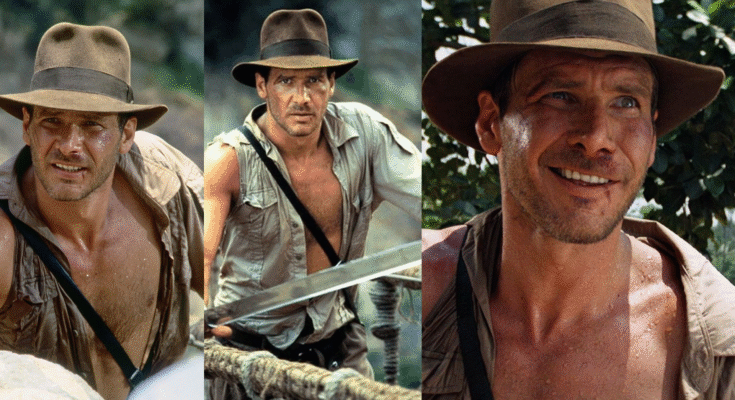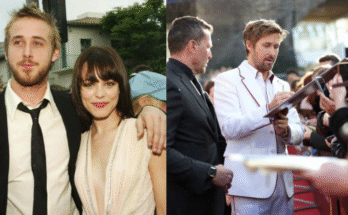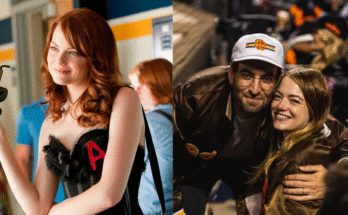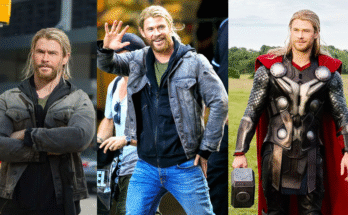A Life Built on Authenticity, Not Celebrity
Harrison Ford (born July 13, 1942) is an American actor. Regarded as a cinematic cultural icon, he has starred in many films over seven decades, and is one of the highest-grossing actors in the world. Yet what separates Harrison Ford from other actors of his stature is not just the iconic roles he has played or the billions of dollars his films have earned. It is his unwavering commitment to authenticity, his refusal to compromise his integrity, and his genuine disinterest in the trappings of stardom.
While Harrison Ford is undeniably a movie star, more significantly he’s a truly gifted craftsman; his sense of joy and accomplishment come from an absolute dedication to his art — be it building furniture, soaring solo through the skies or creating a fully realized character within whom we recognize ourselves.
This is the story of a man who built a career on his own terms, turning down offers that didn’t matter to him, becoming a carpenter to support his family when Hollywood didn’t interest him, and ultimately creating two of cinema’s most beloved characters while maintaining a life of genuine purpose beyond the red carpet.
The Unremarkable Beginning: From Midwest to Hollywood
Harrison Ford was born on July 13, 1942, in Chicago, Illinois, to Dorothy (nee Dora Nidelman), a homemaker and former radio actress, and Christopher Ford, an advertising executive and a former actor. He is of Irish Catholic and Russian Jewish ancestry.
Harrison Ford’s childhood was unremarkable in the best possible way. He grew up in the Chicago suburbs, attended Maine Township High School East in Park Ridge, Illinois, and by his own admission, was “a lackluster student—no athletic star, never above a C average.” There was nothing in his early years to suggest he would become one of cinema’s most iconic figures.
After dropping out of Ripon College in Wisconsin, where he did some acting and later summer stock, he signed a Hollywood contract with Columbia and later Universal. His roles in movies and television (Ironside (1967), The Virginian (1962)) remained secondary and, discouraged, he turned to a career in professional carpentry.
This decision—to leave acting for carpentry—proved to be the most important of his life. It would reshape his entire career trajectory and define his approach to both acting and life itself.
The Carpenter’s Apprenticeship: Building a Foundation
In the late 1960s and early 1970s, Harrison Ford worked as a professional carpenter. This wasn’t a sideline or a hobby—it was a genuine livelihood, a way to support his growing family while maintaining his dignity and refusing to compromise on the quality of roles he would accept.
Even when he couldn’t financially afford not to take whatever roles were offered, Ford refused to compromise his ideals, teaching himself carpentry in order to support his family and to give himself the luxury of only accepting roles he deemed worthwhile.
This decision reveals something profound about Ford’s character. He could have accepted any role to maintain a Hollywood presence. Instead, he chose to build houses—literally and figuratively—to maintain his artistic integrity. Carpentry wasn’t a failure or a temporary setback. It was a statement: “I would rather build with my hands than compromise my values.”
The carpenter who would become one of the greatest action stars in cinema history spent years learning his craft, developing the work ethic and precision that would later define his approach to acting. When you build a house, every detail matters. The foundation must be solid. The walls must be plumb. You cannot fake craftsmanship. This philosophy would become central to how Harrison Ford approached his art.
The Breakthrough: Bob Falfa and a Meeting with George Lucas

He came back big four years later, however, as Bob Falfa in American Graffiti (1973). Four years after that, he hit colossal with the role of Han Solo in Star Wars: Episode IV – A New Hope (1977).
American Graffiti (1973) directed by George Lucas was Ford’s first significant role. As Bob Falfa, the arrogant hot-rodder, Ford brought a cocky charm and authentic physicality to the character. The film became a cultural phenomenon, and Ford emerged as a talent worth paying attention to.
But it was the chance meeting—or rather, the chance work—that changed everything.
Ford was working as a carpenter on the set of Star Wars, literally building sets for the film, when director George Lucas noticed him. Impressed by something in Ford’s bearing, Lucas offered him the role of Han Solo—the smuggler with a heart of gold, the cynic who becomes a hero.
Four years later, he reunited with Lucas to play the iconic role of Han Solo in Star Wars: Episode IV – A New Hope. The sci-fi epic earned 12 Oscar® nominations, including Best Picture, and went on to become the top-grossing film in history, a record it held for 20 years.
Han Solo: Creating an Icon
When Harrison Ford was cast as Han Solo, he was given a script by George Lucas that, by Ford’s own account, contained some wooden dialogue. During table reads, Ford famously turned to Lucas and said, “George, you can type this stuff, but you can’t say it.”
It was an act of creative collaboration that would define Ford’s approach: respect the material, understand the character, but don’t be afraid to push back when something doesn’t feel authentic. What resulted was a character who seemed to barely fit into the Star Wars universe—a scoundrel, a smuggler, a man motivated by profit rather than noble ideals. And yet, Han Solo became beloved precisely because he felt real, human, flawed.
The original Star Wars trilogy—A New Hope (1977), The Empire Strikes Back (1980), and Return of the Jedi (1983)—made Harrison Ford a global star. The George Lucas/Steven Spielberg collaboration, starting with Raiders of the Lost Ark, Indiana Jones and the Temple of Doom, Indiana Jones and the Last Crusade, Indiana Jones and the Kingdom of the Crystal Skull grossed approximately $279 million worldwide.
More than just a commercial success, Han Solo represented something cinema needed: a hero who wasn’t heroic by default, but became heroic through choice. Ford’s performance made the character work—not through grand gestures or dramatic speeches, but through wit, pragmatism, and finally, through genuine love for his companions.
Indiana Jones: The Creation of a Legend
Another four years and Ford was Indiana Jones in Raiders of the Lost Ark (1981).
If Han Solo made Harrison Ford a star, Indiana Jones made him a legend.
Indiana Jones represented a different kind of hero entirely. Where Han Solo was cynical and reluctant, Indiana Jones was intellectual and passionate. He was an archaeologist seeking knowledge and historical truth, willing to face danger and even death for his quest. He had flaws—he was willing to sacrifice innocents for artifacts, he was driven by ego as well as scholarship, and yet his fundamental integrity remained intact.
For the aforementioned portrayals, he has received several wins and nominations at the Saturn Awards, winning Best Actor for Raiders of the Lost Ark (1981), Star Wars: The Force Awakens (2015), and Indiana Jones and the Dial of Destiny (2023).
What made Ford’s Indiana Jones so effective was his ability to balance physical action with intellectual credibility. He looked like an archaeologist—worn leather jacket, fedora, whip—but he also moved like one, thought like one. He made the character believable in ways that a purely physical performer could not.

The Indiana Jones franchise spanned decades: Raiders of the Lost Ark (1981), The Temple of Doom (1984), The Last Crusade (1989), The Kingdom of the Crystal Skull (2008), and finally The Dial of Destiny (2023)—proving that Ford’s commitment to the character extended beyond the original trilogy into his sixties and seventies.
The Dramatic Turn: Witness and Blade Runner
While Han Solo and Indiana Jones defined Ford’s public image, his most critically acclaimed performances came in different genres entirely.
Four years later and he received Academy Award and Golden Globe nominations for his role as John Book in Witness (1985).
In Witness, Ford played a Philadelphia detective who witnesses a murder and goes into hiding with a young Amish boy and his mother. The role allowed Ford to demonstrate genuine vulnerability and romantic tenderness. His Oscar nomination for Best Actor reflected the film’s recognition of his dramatic depth.
More radically, in Ridley Scott’s Blade Runner (1982), Ford played Rick Deckard, a “blade runner” tasked with hunting and killing artificial humans called “replicants.” The role was deeply noir—introspective, morally ambiguous, visually stunning. Where Indiana Jones was action-oriented, Rick Deckard was contemplative. Where Han Solo was wisecracking, Rick Deckard was wounded.
He has also portrayed two literary characters brought to film: the anti-hero detective Rick Deckard in the neo-noir science fiction film Blade Runner (1982) and its sequel 35 years later, Blade Runner 2049 (2017)
The fact that Ford returned to this role 35 years later in Blade Runner 2049 (2017)—as an aging, damaged Deckard searching for meaning—demonstrates his commitment to exploring complex characters across his entire career.
The 1980s and 1990s: Peak Years and Artistic Exploration
The 1980s and 1990s represented the height of Ford’s commercial and critical power. He appeared in nearly two decades of commercially successful films:
He had leading roles throughout the 1980s and 1990s with such films as the romantic dramatic thriller Witness with Kelly McGillis for which he received an Academy Award nomination for Best Actor, the romantic comedy-drama Working Girl with Melanie Griffith and Sigourney Weaver, the recovery drama Regarding Henry with Annette Bening, the man-on-the-run action-thriller The Fugitive with Tommy Lee Jones, and the romantic comedy-drama remake Sabrina with Julia Ormond, earning Golden Globe nominations for the latter two films.
What’s remarkable about this period is the diversity. Ford played:
A Midwestern doctor discovering love and life meaning in Regarding Henry (1991)
A man wrongly accused of murder on the run in The Fugitive (1993) – a role that showcased his ability to carry an entire thriller with subtle intensity
A corporate executive seeking redemption in Working Girl (1988)
A romantic lead in Sabrina (1995), proving he could anchor a romantic comedy

From 1977 to 1997, he appeared in 14 films that reached the top 15 in the yearly domestic box-office rankings, 12 of which reached the top ten. Six of the films he appeared in during this time were nominated for the Academy Award for Best Picture, among other awards: Star Wars, Apocalypse Now, Raiders of the Lost Ark, Witness, Working Girl, and The Fugitive.
These weren’t vanity roles or franchise repetition. This was an actor deliberately choosing diverse characters, challenging himself and audiences’ perceptions of who he was.
The Philosophy of Acting: Authenticity Over Spectacle
What distinguishes Harrison Ford from other action stars is his fundamental approach to character building. He doesn’t rely on manufactured charisma or superhuman abilities. Instead, he builds characters from the ground up—researching, understanding motivations, finding the humanity beneath the action.
Unique among action heroes, Harrison Ford brings to the screen believable, flesh-and-blood men, flaws and all. Invariably sympathetic and relatable, Ford relies on his intelligence and wit, rather than on manufactured superpowers, to defeat his foes.
This philosophy is evident in how he has discussed his craft:
“What sense is it to be an actor if you play the same thing over and over again? You need to challenge and broaden yourself.”
And on integrity:
“I enjoy refining my skills and developing new skills,” he says. “That’s always been an interest of mine in acting, in carpentry, in everything else I have done — to achieve a level of skill and excellence.”
This explains why Ford turned down roles that didn’t challenge him. This is why he walked away from acting entirely to become a carpenter. He wasn’t interested in being a movie star—he was interested in being an artist.
The Carpenter of Hollywood
Throughout his life, Harrison Ford has maintained his passion for carpentry and craftsmanship. It’s not a metaphor for him—it’s a literal practice. He has built furniture, and this work has grounded him in a way that Hollywood fame never could.
The carpenter mentality is evident in how he approaches acting. Every detail matters. The performance must be structurally sound—the foundation of character must be solid before you add the layers of action, emotion, and spectacle. You cannot fake it. You cannot build on an unstable foundation. You must know your craft intimately.
The Pilot: Another Passion, Another Commitment to Excellence
Beyond acting and carpentry, Harrison Ford is a accomplished pilot. This is not a celebrity hobby or a status symbol. This is a genuine passion pursued with the same commitment he brings to his other endeavors.
Ford is a private pilot of both fixed-wing aircraft and helicopters, and owns an 800-acre (3.2 km2) ranch in Jackson, Wyoming, approximately half of which he has donated as a nature reserve.

More remarkably, Ford has used his piloting skills for genuine humanitarian purposes:
On several occasions, Ford has personally provided emergency helicopter services at the request of local authorities, in one instance rescuing a hiker overcome by dehydration. On 31 July 2000, he piloted his helicopter to rescue dehydrated 20-year-old hiker Sarah George from Table Mountain near his ranch in Jackson Hole, Wyoming.
This is a man who has used his wealth, skills, and resources to help others without seeking publicity or recognition. When Harrison Ford rescued a hiker, he wasn’t looking for media attention. He was responding to a human need.
The Environmental Activist
Beyond his charitable aviation work, Ford is a committed environmental activist. Ford is also an environmental activist, having served as the inaugural vice chair of Conservation International since 1991.
For over three decades, Ford has worked with Conservation International to protect the planet’s ecosystems. In 2018, Ford was honored by the SAG-AFTRA Foundation with the Artists Inspiration Award for both his acting and philanthropic work alongside fellow honoree Lady Gaga. SAG-AFTRA Foundation Board President JoBeth Williams in the press release said, “Harrison Ford is an acting legend in every known galaxy, but what many do not know are the decades of philanthropic service and leadership he has given to Conservation International to help protect our planet.”
The Later Years: Reinvention and Longevity
As Ford entered his 60s and 70s, many expected him to retire or fade from cinema. Instead, he has reinvented himself, taking supporting roles and character parts that allowed him to explore new dimensions.
In films like Morning Glory (2010), Cowboys & Aliens (2011), 42 (2013), and Ender’s Game (2013), Ford demonstrated his ability to step back from the lead and be a character actor—gruff, wise, world-weary, but essential.
He continued to diversify his choice of roles throughout the 2000s and 2010s, transitioning from leading man to character actor with such parts as cantankerous newsman Mike Pomeroy in the romantic comedy Morning Glory with Rachel McAdams and Diane Keaton, Colonel Woodrow Dolarhyde in the science fiction/western hybrid Cowboys & Aliens with Daniel Craig, real-life Brooklyn Dodgers general manager Branch Rickey in the historical sports drama 42 with Chadwick Boseman as Jackie Robinson, the no-nonsense Colonel Hyrum Graff in the science fiction adaptation of Orson Scott Card’s novel Ender’s Game with Ben Kingsley and Viola Davis, and the wounded aging lover William Jones in the romantic drama The Age of Adaline with Blake Lively and Ellen Burstyn.
Most remarkably, Ford has returned to both Star Wars and Indiana Jones in their modern iterations, proving that he could bring depth and poignancy to these aging versions of his iconic characters.
He starred in Blade Runner (1982) by Ridley Scott, Witness (1985) and The Mosquito Coast (1986) by Peter Weir, Working Girl (1985) with Melanie Griffith and Sigourney Weaver, Regarding Henry (1991) with Annette Bening both directed by Mike Nichols, Frantic (1988) by Roman Polanski, Presumed Innocent (1990) by Alan Pakula, The Fugitive (1993), Sabrina (1995) by Sydney Pollack.
Recently, Ford has appeared in the television series 1923 (a Yellowstone spinoff) and Shrinking (an Apple TV+ comedy series), earning a Primetime Emmy Award nomination for the latter. At 82 years old, Ford continues to work, to challenge himself, and to bring authenticity to every role.
The Awards and Recognition
Ford’s accolades include nominations for an Academy Award, a British Academy Film Award, an Emmy Award, five Golden Globe Awards, and two Screen Actors Guild Awards. He is the recipient of the AFI Life Achievement Award, Cecil B. DeMille Award, Honorary César, and Honorary Palme d’Or, and he was honored as a Disney Legend in 2024.
In 2000, Ford received the AFI Life Achievement Award, one of cinema’s highest honors. In 2000, he was the recipient of the AFI Life Achievement Award from the American Film Institute for his body of work, presented to him by two of his closest collaborators and fellow industry giants, George Lucas and Steven Spielberg.

In 2002, he was given the Cecil B. DeMille Award, another career achievement honor, from the Hollywood Foreign Press Association at the 59th Golden Globe Awards ceremony. On May 30, 2003, Ford received a star on the Hollywood Walk of Fame.
Yet what’s most notable is not the awards Ford has won, but the ones he hasn’t—he has never won an Academy Award for acting, despite a nomination for Witness. This fact reveals something important: Ford’s career was not built on winning awards but on creating authentic characters and maintaining artistic integrity.
The Box Office Legacy
The numbers tell part of the story. From the late 1970s onward, Harrison Ford has been one of the most commercially successful actors in cinema history. His films have grossed billions of dollars worldwide. He has appeared in multiple franchises that have generated generational wealth for studios and producers.
In 1997, Empire magazine ranked this actor No. 1 in its Top 100 Movie Stars of All Time list.
But more importantly, In 1994, the National Association of Theater Owners named him the Box Office Star of the Century.
Yet Ford himself remains humble about this success. When asked about his popularity, he has noted the absurdity of being mistaken for his characters, telling a story of trying to convince elderly women at an airport that yes, he really is Harrison Ford—and they still didn’t believe him.
The Man Beyond the Character
What makes Harrison Ford’s legacy so enduring is that he has never confused himself with his characters. He is not Han Solo. He is not Indiana Jones. He is Harrison Ford—a carpenter’s son from Chicago who became an actor, but remained a craftsman first.
He has maintained his integrity, refused roles that didn’t matter to him, used his wealth and celebrity for genuine humanitarian purposes, and continued to work and challenge himself well into his eighth decade. He has not rested on his laurels or relied on his past successes.
While he appreciates the abundant accolades bestowed upon him (1994’s N.A.T.O. ShoWest Star of the Century, 1996’s Harvard’s Hasty Pudding Theatrical Man of the Year, 1997’s Peoples Choice Award for Favorite Male Actor, 1998’s G.Q. Magazine’s Man of the Year Award and 1998’s People Magazine’s Sexiest Man Alive), the awards ultimately mean less to him than turning in a precise, refined, delicate performance.
Conclusion: The Carpenter’s Legacy
Harrison Ford’s career represents something increasingly rare in cinema: a commitment to authenticity over celebrity, to craft over commerce, to integrity over convenience. He built his career slowly, with precision and care, refusing to cut corners or compromise his vision.
He is an action hero who values intelligence and wit over manufactured spectacle. He is a movie star who would rather be a carpenter. He is an international icon who remains grounded in the values of his Midwest childhood. He is a Hollywood legend who has used his platform to protect the environment and save lives.
At 82 years old, Harrison Ford continues to work, to pilot helicopters, to build things, and to pursue excellence in everything he does. He has not tired. He has not compromised. He remains what he has always been: a true craftsman.
Because of his remarkable sense of commitment and integrity in his work and in his life, the American Film Institute honored him to present Harrison Ford with AFI’s 28th Life Achievement Award.
The carpenter who became cinema’s greatest action hero has built a legacy that will endure long after the last sequel is made and the final convention has ended. He did it by being authentic. He did it by refusing to compromise. He did it by treating every role, every responsibility, and every moment with the precision and care of a true craftsman.
In the end, Harrison Ford’s greatest achievement is not a character or a franchise—it’s a life lived with integrity, purpose, and genuine mastery of his craft.
“I used to shake my head, as in ‘No, I just look like him.’ But that’s not fair. So I said to those little old ladies at Trenton Airport, ‘Yes, I am Harrison Ford.’ And they still didn’t believe it was me.” – Harrison Ford
The mark of a true artist: even his celebrity is genuine, unpretentious, and grounded in authenticity.



